Identifying the specific moment that a series of individual circumstances becomes a “trend” is as elusive as it is tempting. But while there may be disagreement about whether or not the recent proliferation of new split-off law firms in the Austrian market is a change in the market itself or simply reflects coincidental timing by the highly-regarded senior lawyers who founded them, one thing is clear: Companies searching for high quality legal advice in Austria have more options than ever before. We decided to speak to several of the new market participants to learn more about their strategies, plans, and operations.
Liebscher Dispute Management
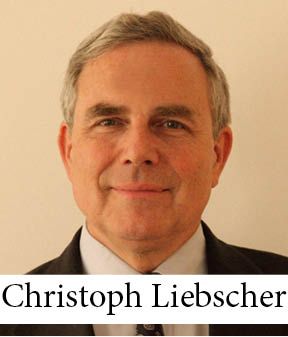 Christoph Liebscher spent some 17 years with Wolf Theiss in Vienna, almost all of them as the head of the firm’s Arbitration practice. Liebscher hired and trained his eventual successor at Wolf Theiss, Florian Haugeneder, and last year he decided that it was time to step aside. “I felt for some years that my main responsibility from a business point of view was to make myself redundant,” he says. “I’m dead serious – I wanted to continue to work in arbitration (primarily as an arbitrator) and I was not willing to hang over my young colleague like a shadow and try to artificially stay involved to meet the budgeting process. So we came very quickly to the very simple agreement that by the middle of last year, by June, that was it.”
Christoph Liebscher spent some 17 years with Wolf Theiss in Vienna, almost all of them as the head of the firm’s Arbitration practice. Liebscher hired and trained his eventual successor at Wolf Theiss, Florian Haugeneder, and last year he decided that it was time to step aside. “I felt for some years that my main responsibility from a business point of view was to make myself redundant,” he says. “I’m dead serious – I wanted to continue to work in arbitration (primarily as an arbitrator) and I was not willing to hang over my young colleague like a shadow and try to artificially stay involved to meet the budgeting process. So we came very quickly to the very simple agreement that by the middle of last year, by June, that was it.”
He hung out his shingle last summer, and under the banner of Liebscher Dispute Management he focuses primarily on his role as Arbitrator, while devoting about 10-20% of his time to counseling select clients. He says, “I don’t go around and ask people to give me counsel work. If people think I can be useful as a counsel I try to jump on board and be part of the crew. But I’m not walking the streets asking people to think of me as a counsel. I’m happy if they think of me as an Arbitrator.”
Liebscher also assists with trainings and skill development of young lawyers, a challenge he enjoys. He focuses, naturally, on dispute-focused trainings, but insists he’s available “really for any situation where a client asks me to analyze legal risks in a preliminary stage.” He says, “I may do several seminars next year … it’s something I really like.”
With Liebscher wearing different hats, Liebscher Dispute Management is, essentially, a one-man show. “My goal was not to set up an arbitration or disputes boutique,” he says. “It’s really just me. Of course I have 2-3 assistants, but in terms of qualified legal work, it’s not a boutique. It’s me.” And when he’s asked whether he has any plans to add people down the road, he laughs. “No indeed. I am absolutely fine. I think my set-up is good. I tell my former colleagues, I am no longer a competitor.”
Liebscher rejects the suggestion that the recent split-offs in Austria indicates a change in the market, noting, “I wouldn’t say that – I think it’s a coincidence.” Instead, he says that for ADR lawyers in particular splitting off from full-service law firms can be almost necessary, where commercial considerations can limit their options, especially in firms with large geographic footprints in smaller markets. In such firms, Liebscher claims, “it’s easy to accumulate a substantial number of clients with potential for development, but which block you, if you go into disputes,” whereas, he notes, “they don’t block you if you stay in advisory or structuring.”
Clarifying his point, Liebscher explains that the major conflict for arbitrators therefore is not with existing clients, but rather with colleagues who hope to develop clients down the road. Liebscher says, “they say, ‘no, don’t take this case in the chemical industry, because we’re trying to expand in that,’ or ‘don’t take this client in this other industry, because we want to focus on that.’”
Now away from that obstacle and working independently, Liebscher is content. “This is what I had hoped it would develop into. I couldn’t wish for better, really.”
Zeiler Partners
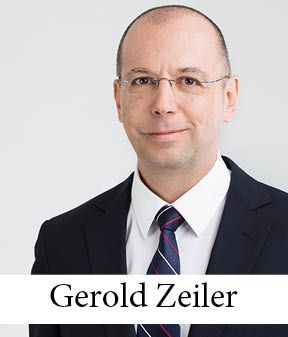 Just as Christoph Liebscher was leaving the Arbitration practice he had long led at Wolf Theiss, Gerold Zeiler left the arbitration practice he had long led at Schoenherr, and like Liebscher’s, Zeiler’s eponymous venture opened in June 2014.
Just as Christoph Liebscher was leaving the Arbitration practice he had long led at Wolf Theiss, Gerold Zeiler left the arbitration practice he had long led at Schoenherr, and like Liebscher’s, Zeiler’s eponymous venture opened in June 2014.
Unlike the one-person show that is Liebscher Dispute Management, however, Zeiler Partners is among the largest of the new players on the Austrian market, with five equity Partners – Lisa Beisteiner, Martin Huger, Hans Georg Laimer, and Alfred Siwy, in addition to Zeiler himself – an Of Counsel in Christoph Schreuer, and six Associates. Zeiler also says he expects to add another Partner at the end of the year, but is reticent about the addition, revealing only that it’s a “Viennese arbitration lawyer.”
Beyond that, however, Zeiler predicts no significant growth in the near future, saying, “there is no need to grow further. Excellent arbitration practitioners are always welcome, but growth for growth’s sake is not a strategy for us.” When asked whether his firm expects to add new practice areas, Zeiler re-emphasizes the point. “Nobody here is interested in being a full service firm.” He laughs. “I was at a full service firm for 25 years, [so] I’ve done that. Now I’m doing something else.”
Zeiler also refers to the conflict of interest challenges Arbitration experts face in a large and multi-jurisdictional firm as a reason for splitting off. In addition, his decision to create his own firm reflected a simple desire to make his own way. “I wanted to try something else in life,” he says. “Schoenherr is an excellent firm, of course. But after having spent the most part of my life there, I thought, ‘well, if there is an occasion to do something else, then it’s now.’”
Zeiler believes the time is particularly felicitous for single-practice split-offs in Austria. “There is certainly a trend in acceptance on the client’s side of specializing firms,” he says. “It’s now much easier to get big mandates and good clients … as long as you are specialized. A few years ago that would have been pretty difficult, because everybody went either to Wolf Theiss, Freshfields, Binder, or Schoenherr. But that changed. Don’t ask me why.”
And Zeiler is convinced the move away from a full-service model only benefits his clients. “What we are doing now,” Zeiler says, “that didn’t change very much from the way we worked at Schoenherr. We were the same team there, we were very specialized, we were one specialized group in a full-service firm, now we are one specialized group outside of a full-service firm. Now that means fewer conflicts of interest, less organization, definitely lower overheads. Otherwise it’s completely the same.”
And, Zeiler reports, the first year of Zeiler Partners has “absolutely” been a success. “Much more than we expected, frankly.”
Geistwert
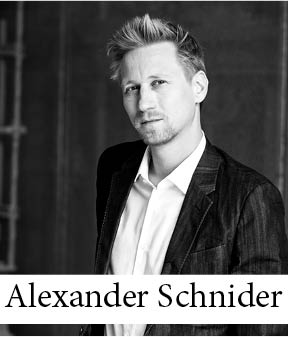 Of course, it’s not only Austrian Arbitrators who conclude that their best options lie outside the full service firm model. The five IP/IT specialists who started the Geistwert firm – Constantin Kletzer (from Fiebinger Polak Leon), Max Mosing (from Gassauer Fleissner), Alexander Schnider (from Baker & McKenzie), and Juliane Messner and Rainer Schultes (both from Taylor Wessing) – believe the same.
Of course, it’s not only Austrian Arbitrators who conclude that their best options lie outside the full service firm model. The five IP/IT specialists who started the Geistwert firm – Constantin Kletzer (from Fiebinger Polak Leon), Max Mosing (from Gassauer Fleissner), Alexander Schnider (from Baker & McKenzie), and Juliane Messner and Rainer Schultes (both from Taylor Wessing) – believe the same.
The five Partners had long known one another as peers, colleagues, and friends, and Kletzer says that, “we all knew this is the right thing to do, right now, and in Austria this is exactly what the clients want. It is basically the right thing to have: an experienced IP boutique with an exchange of experiences, an exchange of networks, and supplying the clients with the best IP service possible.”
And, sure enough, the Geistwert Partners discovered that the market was ready and waiting for a highly skilled IP/IT boutique. “The creation of the Geistwert brand was a big deal in the Austrian market,” Constantin Kletzer explains. “We launched in August/September last year, and by October we had new potential clients contacting us. Not asking for Mr. Kletzer or for Mr. Schnider, but asking for Geistwert. Which is what we wanted to achieve.”
Schnider believes that bigger firms tend to treat IP/IT and some other practices as supplementary rather than core practices. “What we saw in other firms was that IP and IT didn’t get the attention it really deserved. I mean, many of the largest Austrian law firms are mostly driven by M&A, transactions, project and finance, or banking law … that is their main business. So everything else, including IP and IT, seems more or less to be an add-on. So you have the situation where IP/IT guys regularly don’t have the say in the firm. So what we thought is, if we joined forces and put our individual business cases and our individual international networks together, we can multiply the effects of establishing this firm – an IP/IT boutique in Austria – and what we have seen is that many clients actually were looking forward to something like us. They were happy that we entered the market in that formation.”
Schnider believes that the importance of IP practices is bound to grow. “In times like these, IP becomes more and more the most valuable asset for companies. That of course applies for software companies, but also to engineering companies and other patent-holders.” This coincides, Schnider believes, with a truly significant change in the legal services market overall: “What we see – and this is more or less a Pan-European development – is that big companies, multinational companies, are tending to move from full-size law firms to boutiques, true for each sector, for each field of law. So what once was, ‘let’s go to one firm and they do it all,’ has become ‘we go to these four firms, which are the best in their fields in the market, and we can choose with whom we work,’ and that is a development that is good for us, of course.”
And the Geistwert Partners maintain that they’ve discovered that a network of modern boutiques can make cross-selling as easy as it is within a full-service law firm. Schnider says, “What we saw is that in the past years, many boutiques were founded, many spin-offs from major law firms were founded, so what happened then is that all these boutiques – Labor Law boutiques, Public Procurement law boutiques, and boutiques like that – they established their own network. So essentially what happened in Vienna is that a boutique network can act like a full-service network.”
Indeed, Schnider says, it may function even better. “Although the full service law firms have many strengths, we’re confident in the model we’re pursuing. Because we specialize in one particular area and have no colleagues in other practices, we do not feel the kind of pressure to refer clients to colleagues that may sometimes arise in multi-practice firms. As a result, our model – we believe – actually provides clients with greater choice, and, ultimately, more effective service.”
Geistwert operates with no associates, and only one paralegal. According to Alexander Schnider, “we wanted to have a very lean cost structure. We strongly believe that IT and IP work – at least the high level work – can only be done with a lot of experience.” According to Schnider, their model eliminates the multiple reviews of work product necessitated by the “pyramid-like structures” of full service firms, and thus “keeps work and costs low for everybody.”
Although the firm plans to add one associate and one paralegal soon to offer clients “low rates for commodity work or lower-tier litigation,” otherwise there are no plans to expand. Kletzer says, “I think the strategy we have so far is keep the costs down, and keep the work with the partners, which keeps the quality high. Which, especially with the litigation work we do, the IP contracting and licensing work we do, is of utmost importance. This is valued so much by clients – that here they know we’re experienced partners. We are not seeking to grow.”
The Geistwert website announces that, “we can claim, quite immodestly, to be the best of the best.” The lawyers at the firm are, needless to say, highly confident of their prospects.
Starlinger Mayer
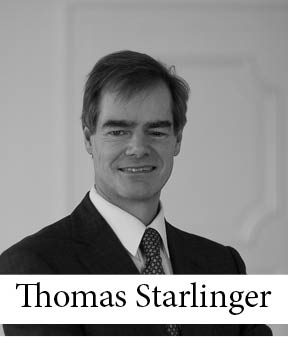 Starlinger Mayer was founded in March, 2015, by established energy expert Thomas Starlinger and competition specialist Christian Mayer – both of whom split off from Fiebinger Polak Leon – along with Contract Partners Valentina Spatz and Moritz Am Ende.
Starlinger Mayer was founded in March, 2015, by established energy expert Thomas Starlinger and competition specialist Christian Mayer – both of whom split off from Fiebinger Polak Leon – along with Contract Partners Valentina Spatz and Moritz Am Ende.
Mirroring the lean structure of the other split-offs, the firm has only one associate. Christian Mayer explains that “the partner contact is very important for clients, and we’re doing to a certain extent quite sophisticated stuff that is difficult to do with inexperienced associates.”
Still, despite being committed to maintaining a small workforce, Starlinger and Mayer resist the term boutique. Mayer says, “I think it’s difficult to call yourself a boutique these days, because at the end of the day you’re doing as much as you can. What distinguishes us from the full-service law firms is that we focus on what believe we can do best and know what we don’t want to do, or are not qualified to do. This is the concept of our firm, because this is what we’ve learned from our times with other law firms … we want to avoid overheads. We want to advise as experts and we always want to give the client the expert experience they might not find in a firm that does everything.”
When asked why they decided the time was right to leave Fiebinger Polak Leon and start their own office, Mayer said, “You know, Thomas and I worked together on many cases, even when we were at Fiebinger, and we realized that the way we worked together is quite fine. There is no jealousy … we just want to do good work as a team, and we don’t care whose client it is, we just want to do the work, and at the end of the day we want the client to be happy, and this is something you don’t always find at other firms in Austria, where everybody has their clients, and they safeguard their clients.”
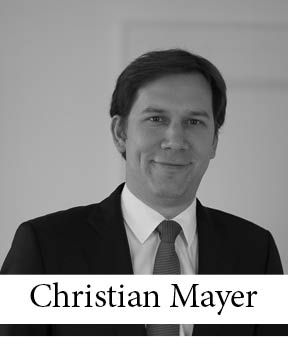 Mayer says it’s still a bit too early to calculate the specific financial terms of their success, but he smiles when describing other elements of it. “In terms of business it has been amazing, and way more than we expected. We were able to maintain most of our long-standing clients, and we got many new clients, and the reaction was so positive. And we received great support from our clients who said this is a great idea, and it’s good that you did it, and when we can work together we will, so that gave us momentum that we didn’t expect.”
Mayer says it’s still a bit too early to calculate the specific financial terms of their success, but he smiles when describing other elements of it. “In terms of business it has been amazing, and way more than we expected. We were able to maintain most of our long-standing clients, and we got many new clients, and the reaction was so positive. And we received great support from our clients who said this is a great idea, and it’s good that you did it, and when we can work together we will, so that gave us momentum that we didn’t expect.”
Unlike some of the other new firms on the Austrian market, Starlinger Mayer plans to grow over time. According to Starlinger, “the vision is sort of controlled growth. We do want to be bigger. We do want to add certain fields to our firm. We do want to widen the transactions business for our firm. We don’t want to expand our activities at any price, so we don’t hire randomly, but when we see an opportunity we try to take it. I don’t want to have 20 partners in 5 years, but if we have 5 partners in five years I’ll be happy.”
This Article was originally published in Issue 2.4. of the CEE Legal Matters Magazine. If you would like to receive a hard copy of the magazine, you can subscribe here.



 Just as Christoph Liebscher was leaving the Arbitration practice he had long led at Wolf Theiss, Gerold Zeiler left the arbitration practice he had long led at Schoenherr, and like Liebscher’s, Zeiler’s eponymous venture opened in June 2014.
Just as Christoph Liebscher was leaving the Arbitration practice he had long led at Wolf Theiss, Gerold Zeiler left the arbitration practice he had long led at Schoenherr, and like Liebscher’s, Zeiler’s eponymous venture opened in June 2014. Of course, it’s not only Austrian Arbitrators who conclude that their best options lie outside the full service firm model. The five IP/IT specialists who started the Geistwert firm – Constantin Kletzer (from Fiebinger Polak Leon), Max Mosing (from Gassauer Fleissner), Alexander Schnider (from Baker & McKenzie), and Juliane Messner and Rainer Schultes (both from Taylor Wessing) – believe the same.
Of course, it’s not only Austrian Arbitrators who conclude that their best options lie outside the full service firm model. The five IP/IT specialists who started the Geistwert firm – Constantin Kletzer (from Fiebinger Polak Leon), Max Mosing (from Gassauer Fleissner), Alexander Schnider (from Baker & McKenzie), and Juliane Messner and Rainer Schultes (both from Taylor Wessing) – believe the same.  Starlinger Mayer was founded in March, 2015, by established energy expert Thomas Starlinger and competition specialist Christian Mayer – both of whom split off from Fiebinger Polak Leon – along with Contract Partners Valentina Spatz and Moritz Am Ende.
Starlinger Mayer was founded in March, 2015, by established energy expert Thomas Starlinger and competition specialist Christian Mayer – both of whom split off from Fiebinger Polak Leon – along with Contract Partners Valentina Spatz and Moritz Am Ende.  Mayer says it’s still a bit too early to calculate the specific financial terms of their success, but he smiles when describing other elements of it. “In terms of business it has been amazing, and way more than we expected. We were able to maintain most of our long-standing clients, and we got many new clients, and the reaction was so positive. And we received great support from our clients who said this is a great idea, and it’s good that you did it, and when we can work together we will, so that gave us momentum that we didn’t expect.”
Mayer says it’s still a bit too early to calculate the specific financial terms of their success, but he smiles when describing other elements of it. “In terms of business it has been amazing, and way more than we expected. We were able to maintain most of our long-standing clients, and we got many new clients, and the reaction was so positive. And we received great support from our clients who said this is a great idea, and it’s good that you did it, and when we can work together we will, so that gave us momentum that we didn’t expect.”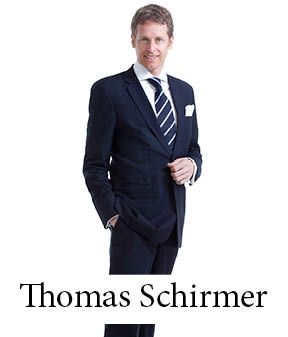

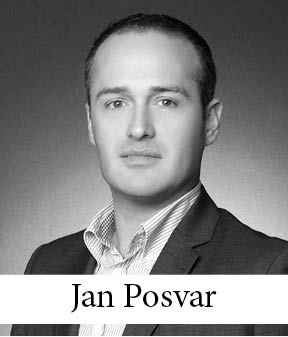
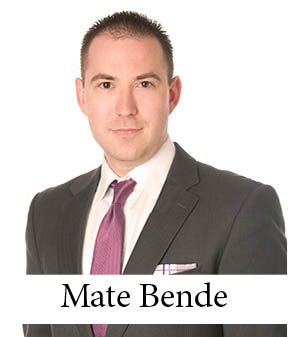 Mate Bende, now an external consultant as Founder of Pro/Lawyer Consulting, echoes Posvar’s assessment. “The legal market is 5-8 years behind the UK or US markets in terms of law firm management, which includes PR and communications,” Bende says. “The good practices and the business-like approach in a wider scale started here 5-6 years ago (following softened bar regulations). The way of doing legal business is clear; CEE just has to catch up a bit.”
Mate Bende, now an external consultant as Founder of Pro/Lawyer Consulting, echoes Posvar’s assessment. “The legal market is 5-8 years behind the UK or US markets in terms of law firm management, which includes PR and communications,” Bende says. “The good practices and the business-like approach in a wider scale started here 5-6 years ago (following softened bar regulations). The way of doing legal business is clear; CEE just has to catch up a bit.” 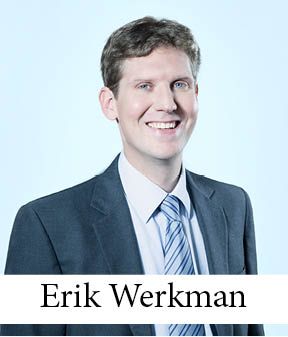 “As a result of the size of law firm offices in CEE, the responsibility for PR or media relations, general marketing, and business development often rests with one and the same person. Many of us are therefore a ‘jack-of-all-trades’,” explains Erik Werkman, Head of Business Development and Marketing, Prague, at CMS. He adds: “The skill sets required for these slightly different tasks are quite similar, so it makes more than just economic sense to combine these roles into one po-sition.”
“As a result of the size of law firm offices in CEE, the responsibility for PR or media relations, general marketing, and business development often rests with one and the same person. Many of us are therefore a ‘jack-of-all-trades’,” explains Erik Werkman, Head of Business Development and Marketing, Prague, at CMS. He adds: “The skill sets required for these slightly different tasks are quite similar, so it makes more than just economic sense to combine these roles into one po-sition.” 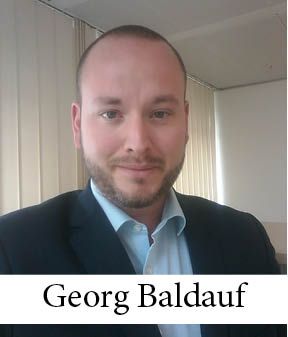 “No, the fifteenth edition of your blackletter law book is really not that interesting and perhaps not as ‘sophisticated’ as you describe it in your press release,” is a message Georg Baldauf, Founder of GreenbergAdvisory, tries to instil in law firm PR representatives. While Baldauf’s point is to not exaggerate the importance of firm-produced material when talking to the press, his warning also hints at the value of producing – and promoting – genuinely interesting information.
“No, the fifteenth edition of your blackletter law book is really not that interesting and perhaps not as ‘sophisticated’ as you describe it in your press release,” is a message Georg Baldauf, Founder of GreenbergAdvisory, tries to instil in law firm PR representatives. While Baldauf’s point is to not exaggerate the importance of firm-produced material when talking to the press, his warning also hints at the value of producing – and promoting – genuinely interesting information.